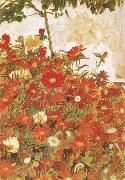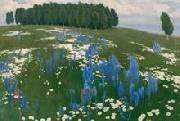Wholesale Oil Painting No Minimum |
|||||||||||
|
|
|||||||||||

|
|||||||||||
|
|
|
||||||||
Egon Schiele1890-1918 Austrian Egon Schiele Gallery Egon Schiele (12 June 1890 ?C 31 October 1918) was an Austrian painter, a protege of Gustav Klimt, and a major figurative painter of the early 20th century. Schiele's body of work is noted for the intensity and the large number of self-portraits he produced. The twisted body shapes and the expressive line that characterize Schiele's paintings and drawings make the artist an early exponent of Expressionism, although still strongly associated with the art nouveau movement (Jugendstil). The most important collection of Schiele's work is housed in the Leopold Museum, Vienna. In 1907, Schiele sought out Gustav Klimt. Klimt generously mentored younger artists, and he took a particular interest in the gifted young Schiele, buying his drawings, offering to exchange them for some of his own, arranging models for him and introducing him to potential patrons. He also introduced Schiele to the Wiener Werkstätte, the arts and crafts workshop connected with the Secession. In 1908 Schiele had his first exhibition, in Klosterneuburg. Schiele left the Academy in 1909, after completing his third year, and founded the Neukunstgruppe ("New Art Group") with other dissatisfied students. Sitzender weiblicher Akt, 1914Klimt invited Schiele to exhibit some of his work at the 1909 Vienna Kunstschau, where he encountered the work of Edvard Munch, Jan Toorop, and Vincent van Gogh among others. Once free of the constraints of the Academy's conventions, Schiele began to explore not only the human form, but also human sexuality. At the time, many found the explicitness of his works disturbing. |
||||||||
|
|
||||||||
Field of Flowers
Field of Flowers Painting ID:: 47938 |
mk189
1910
mk189 1910 |
|||||||
|
|
||||||||
Paul Raud(22 October 1865 in Kirikukela, Viru-Jaagupi Parish C 22 November 1930 in Tallinn) was an Estonian painter. The twin brother of painter Kristjan Raud, he studied in Desseldorf beginning in 1886, becoming influenced by the work of Eduard Gebhardt. After his return to Estonia, he painted mainly portrait commissions for some time, before traveling with his brother and Amandus Adamson to the islands of Muhu and Pakri in 1896. His works of this period are reminiscent of those of Max Liebermann. In 1899 he returned to work in Germany, taking on some of the stylistic trappings of Impressionism; this, coupled with time spent working with Ilya Repin, influenced his later style. Later in his career, most especially during and after World War I, he began to teach, from 1915 working as a drawing instructor at the Tallinn Institute of Commerce and from 1923 at the State School of Industrial Art in Tallinn. |
||||||||
|
|
||||||||
|
|
Field of flowers
Field of flowers Painting ID:: 74644 |
English: Field of flowers, 1906-1911. Oil
cyf English: Field of flowers, 1906-1911. Oil cyf |
||||||
|
|
||||||||
|
Paul Raud (22 October 1865 in Kirikukela, Viru-Jaagupi Parish C 22 November 1930 in Tallinn) was an Estonian painter. The twin brother of painter Kristjan Raud, he studied in Desseldorf beginning in 1886, becoming influenced by the work of Eduard Gebhardt. After his return to Estonia, he painted mainly portrait commissions for some time, before traveling with his brother and Amandus Adamson to the islands of Muhu and Pakri in 1896. His works of this period are reminiscent of those of Max Liebermann. In 1899 he returned to work in Germany, taking on some of the stylistic trappings of Impressionism; this, coupled with time spent working with Ilya Repin, influenced his later style. Later in his career, most especially during and after World War I, he began to teach, from 1915 working as a drawing instructor at the Tallinn Institute of Commerce and from 1923 at the State School of Industrial Art in Tallinn. Field of flowers English: Field of flowers, 1906-1911. Oil cyf |
||||||||
|
|
||||||||
|
Prev Next
|
||||||||
|
|
||||||||
|
Related Paintings to Paul Raud :. |
||||||||
|
|
||||||||
|
CONTACT US |


